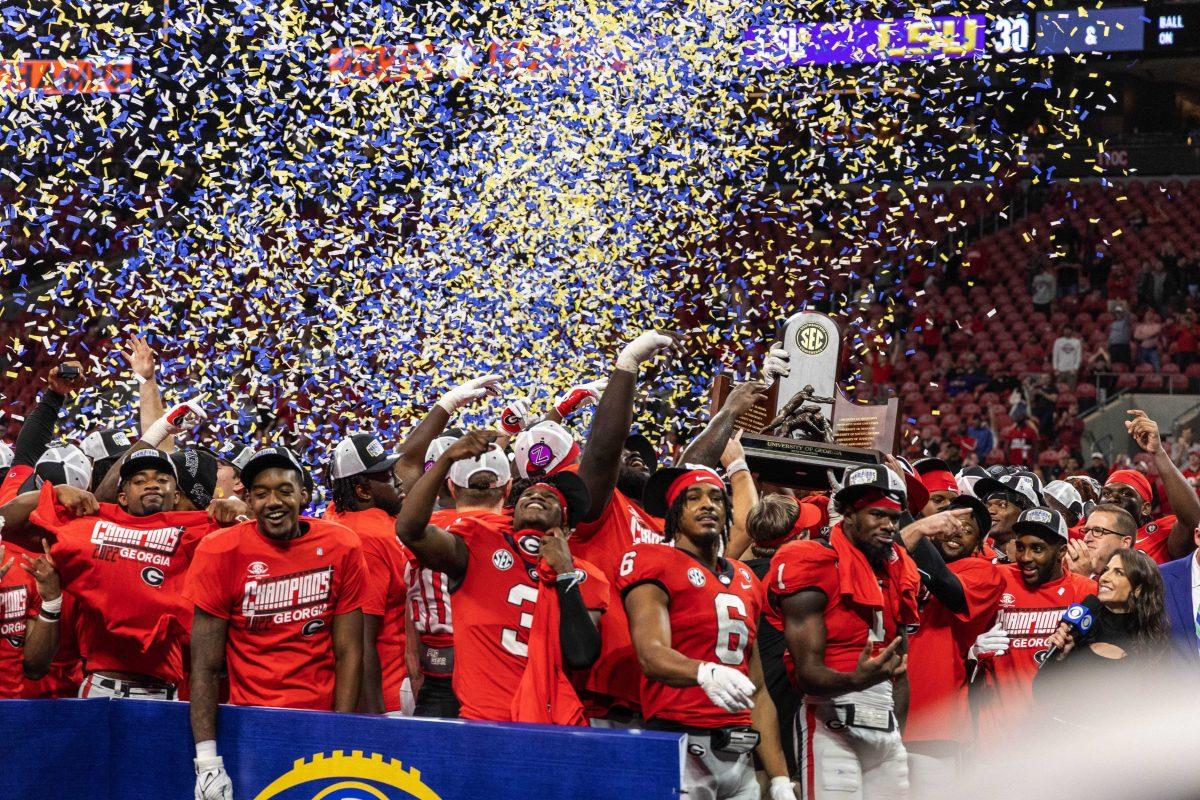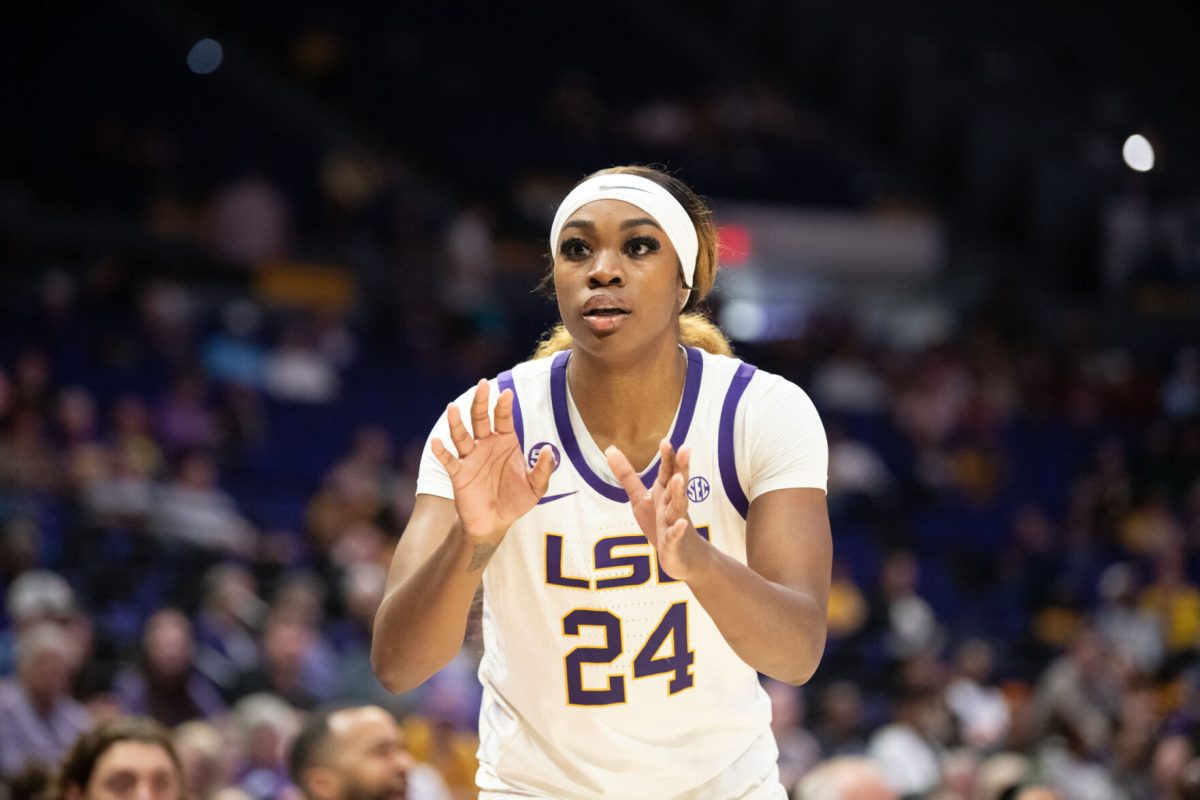It’s unfortunate that we have to sit through another season that features a four-team playoff, knowing full well that a game like this year’s championship could serve as its conclusion.
I am not discounting the incredible run TCU endured throughout Sonny Dykes’ first season with the program. Although the Big 12 conference was clearly weakened compared to the last few seasons, evident by the fact that it finished bowl season with the worst record by far at 2-7, the Horned Frogs still shattered preseason expectations and ended the regular season undefeated, and they deserve to be commended for that.
As polarizing of an underdog as TCU was, you couldn’t help but respect it for what it was able to accomplish and root for it once your respective team got eliminated from playoff contention. And when most expected their run to come to an end in the CFP Semifinals against Michigan, the Horned Frogs once again pulled off the improbable, defeating the Wolverines in a 51-45 thriller.
But all good things must come to an end, and unfortunately, the end to TCU’s run was abrupt and hard to watch. And what’s even more difficult to accept is the fact that kept getting proven over and over again throughout that game: the Horned Frogs shouldn’t have been there.
Through 118 days of its 119-day season, Michigan appeared to be the playoff team with the best chance of dethroning Georgia. In their regular-season finale, the Wolverines decimated another eventual playoff team in Ohio State by three scores, a team that came one field goal away from beating the Bulldogs in the College Football Playoff Semifinal.
For TCU to defeat Michigan, everything had to go right.
The Horned Frogs acquired a 19-point cushion at the end of the third quarter thanks to two pick-sixes, a terrible fourth-down call in the red zone by Jim Harbaugh and one of the best defenses in the country not showing up to play, a cushion that vanished into thin air in less than two minutes of game time. Without all the early mistakes from the Wolverines, I doubt TCU pulls it off.
That doesn’t mean the Horned Frogs didn’t deserve to win, they clearly did. Max Duggan and the TCU offense played a tremendous game, its defense made plays when it needed to and it ultimately outcoached Michigan to a well-deserved victory. But that doesn’t mean the win shouldn’t be considered an upset.
An upset shouldn’t place a team in the championship game, a game that’s completely separate from the rest of the college football season and typically results in most of the remaining world of sports taking a night off. That’s why the structure of the NCAA Tournament in college basketball gets praised every season and still typically results in entertaining final rounds.
Since the tournament expanded to 64 teams in 1985, there’s been an average of just under 13 upsets per bracket, most of which occurred in the first round. Despite such a high number of upsets, it’s rare that a lower-seeded team makes it past the second round, as its next opponent is often wary of what it’s capable of. Those that do make it further, like St. Peter’s last season or UCLA in the season prior, typically prove to be worthy of a deep tournament run through great coaching and chemistry.
But in college football’s current playoff structure, there’s no chance to eliminate a team that doesn’t meet those criteria, on top of the fact that a talent gap in football means more than in basketball. In this case, if the playoff had been expanded, it’s highly doubtful TCU would have advanced further than the second round, if that (considering its projected opponent would have been Tulane according to CBS).
Many laughed at Nick Saban for campaigning through the night for Alabama to be let into the playoff, then watched in disbelief as the Crimson Tide crushed the Big 12 Champion Kansas State Wildcats in the Sugar Bowl, the one team that was able to blemish TCU’s perfect record prior to Georgia.
Tennessee proved it could perform well against decent competition without Hendon Hooker at the helm and as Penn State proved itself with a strong, two-score victory over PAC-12 champion Utah. Even Tulane, the projected Group of Five playoff candidate in a world where the NCAA made quicker decisions, pulled off a stunning victory over a USC team led by Heisman-winning quarterback Caleb Williams, winning its first New Year’s Six bowl since 1935.
If the playoff had been expanded in 2023, it would’ve been incredibly exciting. While it likely would’ve concluded in a repeat of last year’s matchup of Alabama vs. Georgia, if those were the two best teams in the country, so be it.
Personally, I feel like Penn State and Tennessee would have been fun dark-horse squads to root for later in the bracket, teams that realistically could have toppled a frontrunner or two.
And if Georgia still found itself in the championship game in the end, I doubt we would have witnessed its biggest blowout victory since the early goings of last season.








